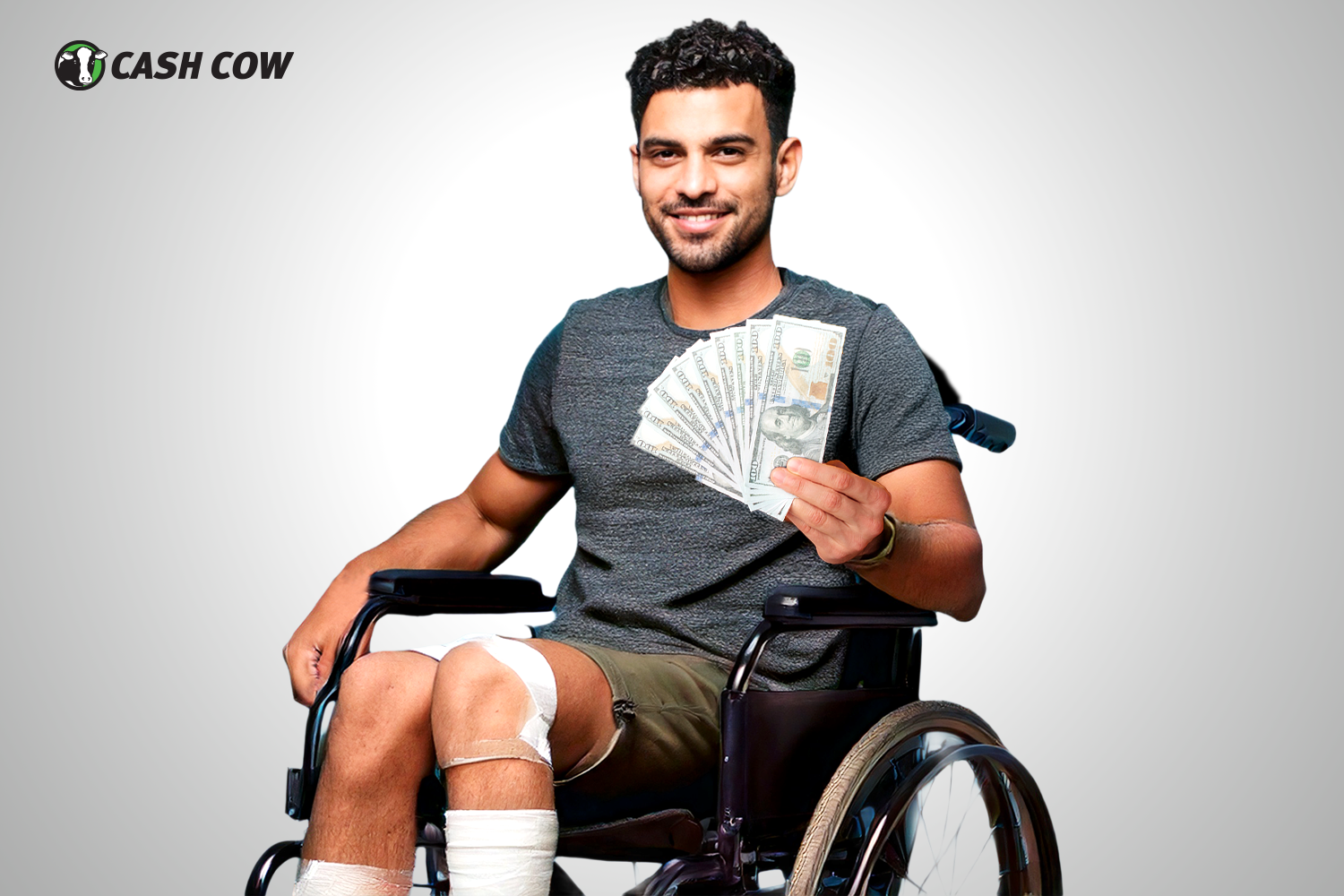- Set financial goals to give you something to strive for when saving money
- Track your spending to determine what expenses you can cut out
- Shop for groceries with a list to avoid buying things you don’t need
- Don’t shop online at night to avoid spending on luxury items
- Do a no-spend challenge to practice financial discipline
- Cancel subscriptions that you don’t use
- Adopt a reverse budget method to prioritize your savings
- Use the DIY method to handle things around the house yourself rather than paying someone
At some point in our lives, all of us will fall into the trap of spending money on things we don't need. Making a habit of spending money unnecessarily can put you in a tough financial position. Without saving money, you need to achieve long-term financial goals or afford financial emergencies.
In this guide from Cash Cow in Louisiana, we will explain eight tips for developing better money habits to help you stop spending money on unnecessary purchases. We will also explain how title loans in Louisiana can help provide emergency cash during a financial crisis.
The Top 8 Tips For Developing Better Money Habits
Many people want to learn about ways to stop spending money to help with their savings but may not know how to execute a financial plan. Below, we will go over eight ways you can develop better money habits to help avoid wasting money on luxury expenses. Use this guide to create better financial discipline and increase your savings.
The following are eight tips for developing better money habits:

1. Set Financial Goals
If you don't have anything to financially work toward, it can be easier to spend money on unnecessary expenses. There’s nothing you’re working towards, so saving money for later can seem pointless.
Setting a monetary goal will truly change how you think about and use your cash. You can have this goal in mind when faced with a financial decision. For example, you may find an expensive pair of shoes when out at a mall with your friends. If you know you’re saving money to move out of your parents’ house, you can practice financial discipline and avoid paying for these luxury items.
The following are some financial goals you can strive to achieve:
- Start a savings account
- Invest for your retirement
- Save $100,000
- Save for your child's future
- Repay student loans
- Buy a new home or car
- Pay for a wedding
2. Track Spending Habits
Those who spend a lot of money without realizing it rarely track their spending habits. They just spend the money, and eventually, they’ll look at their bank account and find less money there than they initially thought.
Without tracking spending habits, it can be hard to determine what spending you should cut out of your budget. This tip is easy to implement, as it just involves writing down everything you spend money on.
At the end of the month, you can look at your list of purchases and determine which were essential and which you can do without. You will now have lived with these purchases and can establish which were worth the price. This can help you develop financial discipline, as you can take the time to consider your spending history to develop better money habits.
3. Go Into The Grocery Store With A List
Everyone’s been there: you go into the grocery store with a plan to just buy what you need to cook dinner and end up with a cart full of food that costs you over $100. One way to avoid unnecessary spending at the grocery store is to come in with a written list.
While the temptation can still be there, having a clear written goal in mind when entering the store can add more focus to your visit. Rather than wandering around looking for things to buy, you can head directly to the sections you need to be in to buy specific items.
4. Avoid Online Shopping Late At Night
Although the advent of online shopping has saved people a lot of time from having to go to the store, it can also increase the temptation of making unnecessary purchases. Algorithms serve you items they know you have an interest in, and it can be hard to fight the urge to buy these items late at night when you’re tired with your guard down.
Our advice is to leave Amazon and Facebook Marketplace when the sun goes down to avoid purchasing something you don’t need. When you need to unwind, you should listen to music, read a book, watch a movie, or do anything other than look at online marketplaces, as ‘just looking around’ can turn into spending unnecessarily rather quickly.
5. Start A No-Spend Challenge
A no-spend challenge is when you test yourself to not spend any money outside of essentials over a fixed period of time. This can range from a weekend to a week to multiple months. Periodically challenging yourself by not spending money can help instill financial discipline because you will avoid any non-essential costs.
It can help you develop better spending habits that can affect your spending once you come off the challenge. You’ll learn what you need in your life and what non-essentials you can live without. Doing a no-spend challenge can help you budget, as you will learn what essentials you can cut out.
6. Cut Out Unnecessary Subscriptions
In the modern age, many people spend a ton of money on subscription services for music, television, food delivery, and much more. While these subscriptions may seem necessary, you don’t have a need for all of them. In a given month, you may not even use a subscription that you are paying for.
If you want to know how to improve financial habits, one thing you could do is cut out unnecessary subscriptions. Write down all of your subscriptions, along with their cost, and think about how much you use each. If you don’t need a subscription, you can cancel it to give yourself a little money back. Over the course of a year, this decision can save you over $100.
7. Try A Reverse Budgeting Method
One budget method you could try to avoid unnecessary expenses is a reverse budget. This type of budget involves putting savings first by investing money into your savings once you receive your paycheck. Rather than worrying about expenses and saving whatever money is left over, you can emphasize your savings to help with long-term financial goals.
By spending more money on your savings, you’ll likely have less discretionary income to spend on luxury items. A reverse budget can work twofold: you can increase your savings and financial discipline by spending less money on things you don’t need.
8. Tap Into DIY
The “do it yourself” method involves handling tasks that you would normally pay someone to do yourself rather than spending money. For example, you may want to put in an air conditioning unit. Rather than hiring someone, you can handle it yourself to save hundreds of dollars.
You can handle simple repairs around the house or with your car to save money. Cooking for yourself can also be included in the DIY lifestyle. You can save a lot of money and practice better money habits by buying and cooking groceries rather than spending money on restaurants and food delivery.
Paying For Financial Emergencies With Title Loans
While you look for ways to improve your financial habits, urgent expenses may arise that require you to spend a lot of money. These financial emergencies can be expensive, and you may be unable to afford them. This is where title loans for Cash Cow in Louisiana can come in.
A title loan is a secured emergency loan that lets borrowers who have fully paid off their cars use their lien-free car title as collateral. You can borrow up to $15,000, with your loan value depending on the value of your car. All you need to get approved is your car, driver’s license, and lien-free car title.
At Cash Cow in Louisiana, we keep the approval process simple, with borrowers getting same-day approval for car title loans. You can start the process online without needing to visit an in-person store. Borrowers of all credit types can get approved and receive their emergency cash the same day or the next business day.

Apply For Title Loans In Louisiana – Get Approved For Up To $15,000 Today!
Building better money habits is easy when you focus on making more responsible decisions. Some of the tips above can help you stop spending money on unnecessary purchases and build your savings. However, some purchases are unavoidable, and we can help at Cash Cow when financial emergencies arise with our Louisiana title loans.
The approval process can take less than an afternoon; you can start by completing our online form today. One of our loan representatives can guide you through the process over the phone and will even visit you at your home or office to get you approved.
Note: The content provided in this article is only for informational purposes, and you should contact your financial advisor about your specific financial situation.







